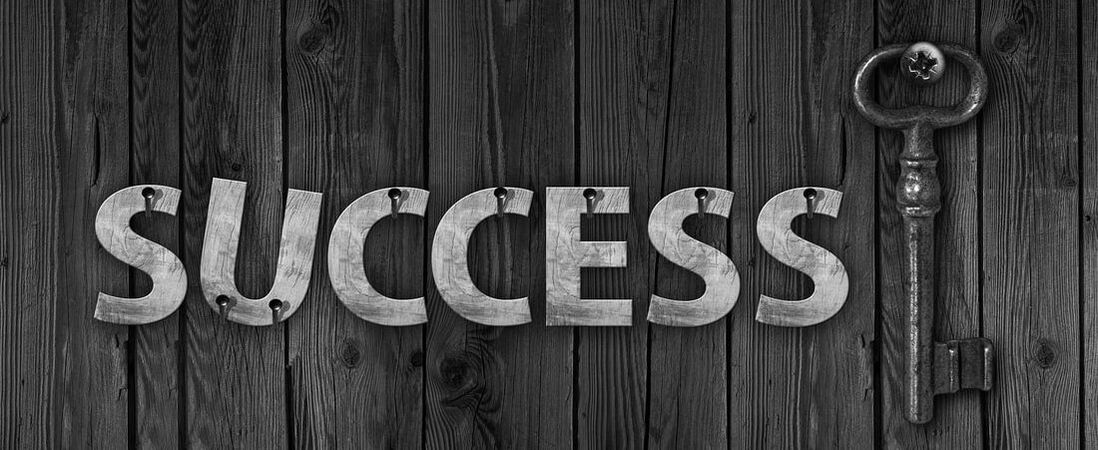|
Lately, I have been reflecting on my financial journey, some of the tough decisions I had to make and the lessons I learned on the way. There have been so many times where my finances were a significant factor in my personal growth and development. When I think about my relationship with money, it used to be one of worry and now it has developed into one of respect.
In this blog post, I will share the five hardest financial decisions I have made and how they have positively influenced my financial status. My 5 difficult Financial Decisions Becoming Financially Independent There is a significant level of comfort that we all had when we are growing up and living under our parents’ roofs. For me, it came to an end at the age of 16. At that time, I started living on my own and taking care of myself financially. My journey started quite rough as I didn't have a solid financial foundation and had to build it all up from scratch. Looking back, I now see that this was the start of many more financial decisions to come. Lessons I learned
Reducing the number of hours I worked to focus on school While I studied for my Bachelor's degree, I was working on many small jobs simultaneously. I worked in a café, on campus, and babysat to raise funds I needed for my basic needs. As my expenses increased, I found myself having to work more, which in turn took away time that I needed to study. I decided to cut my living expenses and focus on school. The financial discipline I learned in this phase of my life is a continuous companion. Lessons I learned
Paying for my graduate degree I had just started working full time and really wanted to earn my Master's degree. Although education in Germany was mostly free or low-cost, I chose a school and course that will let me study part-time and gain a degree in English, which meant I had to pay tuition. I must say I feel very fortunate that the cost was nothing close to studying in other countries. However, since I had to fund my tuition fully, I had to save a lot of the money I made in my first full-time job. I remember struggling to pay the first 2000 euros for my first classes. This was one of my most significant investment in myself and my career, and it has paid off. Lessons I learned
Investing in my first long-term stocks In the past years, I focused on growing my savings. The discipline I learned in my early days helped me build a significant emergency fund and savings. However, I started learning a new lesson about other ways to grow my money. When I started my investment journey, I took baby steps. I started with a very small investment and grew it as I got more confident. Lessons I learned
Taking money out of my long-term savings to invest in a big project This is the most recent, most significant, and hardest decision I have ever made with regards to my finances. For many years, I have been very disciplined about growing my savings. I have not missed a monthly payment to my saving account for at least the last ten years. So, when the time came for me to literally move a lot of my savings into an investment, I started to panic because I did not feel as financially secure as I like to be. Now that I'm thinking about it, I was in no financial danger. This investment has been a dream for a long time, and now it's a reality. Lessons learned
Call to Action
Final Thoughts
Great Resources
0 Comments
Throughout my career, I have been through transitions that have taught me many valuable lessons. After going through so many changes, I now accept that it is part of my professional journey that I cannot avoid if I want to grow.
In this blog post, I will share some of the lessons I have learned about career transitions and ways I have worked through them. What are Career transitions? There are numerous types of career transitions that involve unanticipated or even undesired shifts in an individual’s career path. In addition, the term career transition may refer to the process by which an individual changes from one job to another within the same job family; and it may also refer to a more dramatic career change from one occupational category to an entirely different one. Finally, a career transition takes place when an employee merely shifts to a new position within the same company or organizational structure. MC's Journey Most of the career transitions I have been through happened without me planning them. Although transitions were not my primary goal, they came through actions I took to grow my career. My career development is something I am very intentional about, and I have learned to appreciate the positive side effects. The top career transitions I have been through include:
5 Lessons I learned about reinventing yourself in your Career Lesson #1: You don't have to do the same thing for life Especially when I lived in Germany, it was quite common to see people who have had the same job or worked for the same company for close to 20 years. Somehow, I could not imagine being in the same company for that long. I like the stability that being in the same company offers you. However, I also wanted to enjoy the comfort of knowing your company and environment. Moving to the US, especially here in Silicon Valley, people typically spend less than two years in one role. I have learned the benefits of working in different roles and companies throughout of your career. Question to consider
Lesson #2: Change in your career is good - embrace it Embracing change is definitely something I am learning every day. Before the transitions, I typically feared the unknown and the upcoming changes to my life. Reflecting on my career, I have seen that the changes and transitions that I have been through have turned out good even when they were accidental and not planned. Question to consider
Lesson #3: You need to keep learning Throughout our careers, it is crucial to learn new skills and gather knowledge. When I prepare for transitions, I make sure I equip myself with a strong foundation for what is about to come. Over time as I learn more about my new role, I take trainings and read more about the areas where I have knowledge gaps. Continuous learning has helped make my transitions more successful. Question to consider
Lesson #4: Be open to explore different jobs and roles Sometimes new roles or jobs don't look perfect initially, or you may feel like you're not ready. In my experience, the most significant growth I have seen in my career has come from the roles I did not feel totally prepared for. I turned down one particular position multiple times, and when I accepted it, I was pleasantly shocked by the great results. Question to consider
Lesson #5: Have a career plan Being intentional about your career growth is crucial. There are some career changes that you can plan and prepare for. Especially if you are planning to change jobs, you have the opportunity to start planning the steps you want to take to achieve your career goals. I have learned to always plan and prepare for the next step in my career. Question to consider
Call to Action
Final Thoughts
Great Resources
Welcome to September, summer is over, everyone is back to school and work. At this point, there are about 110 days left in 2019. We have enough time to do great things. This is the perfect time to plan for the rest of the year.
In this blog post, I will share the ten questions I worked through while I reviewed my progress so far and planned for the rest of this year. #1: How will this review help you? Let's start by acknowledging that you still have time to work towards your goals and make 2019 count. See this as an opportunity to take stock of what you have done so far and prepare for the next months. To get the best out of your planning session, schedule about two hours on your calendar. Now that you have the time reserved let's move to the next steps. #2: What do you want to focus on in this review? Three things to do in this review include:
#3: What have you achieved in the past months? The best place to start is to reflect on your achievements so far. Seeing what you have achieved will serve as motivation for what you want to work towards over the next weeks. #4: What did not go as planned? It is essential to know the goals that you have not been able to achieve so far. You also want to be clear on what hinders you from making progress towards those goals. #5: What do you want to achieve in the next months? Now it's time to think about what you want to achieve this year and make it count. Be as clear as you can be. Keep in mind the things you want to do differently to succeed. #6: How will you track your progress? You are now working against a schedule; you want to ensure you are on track. Make time to check your progress every week. This will allow you to see what is working well and what is not working so you can change course. #7: What tools and resources do you need? There are available tools that can help you be more successful. Think about what you can start using to simplify your life and become more efficient while you work towards your goals. #8: Who is part of your support community? Especially as you work towards achieving big goals, surrounding yourself with people who can help you is very crucial. Identify your accountability partners, advisors, mentors, or coaches who can support you on this journey and work with them. #9: How will you celebrate your success? Think about ways you will reward yourself when you achieve the goals you are setting. There is power in having something exciting to look forward to. #10: What commitment are you making today? Write down what you are planning to start doing today to help you achieve your goals. Start taking action towards your goals one day at a time. Call to Action
Final Thoughts Let's wrap up with some fantastic quotes about goals
Great Resources As I moved around and lived in different countries, I have learned many valuable lessons. In the past two years, I have been reflecting and sharing about various aspects of my experience living in Nigeria, Germany, and now in the US.
I appreciate the opportunity to learn how to overcome challenges on the way and thrive. Continuing the Her relocation series, in this blog post, I will share the ten things that will help you thrive and grow in your new home. #1: Find your people or squad One of the most important parts of settling into a new city or culture is the people you surround yourself with. Spend time building a tight community. In my blog post titled "The impact of community on my relocation journey," I share more about the five types of communities, everyone needs to thrive. #2: Embrace your cultural identity On my journey, I have learned that your cultural identity evolves and changes as you live in different societies. Accepting this fact sometimes takes a while. I shared my personal experience in a video titled "Discovering my Cultural Identity." #3: Make this new place your home Especially if you just moved to a new city or country, you may think it's impossible to ever feel at home there. Take it from someone who has been doing this for 18 years; it is possible to make any place your home. Personally, the moment I started taking steps towards making a new country my home, the happier, I was overall. I stopped fantasizing about leaving and started enjoying my new environment. Check out my video about the time "I almost left Germany." #4: Accept people’s differences There have been times when I didn't feel welcomed in the country I was in. This helped me see the importance of accepting people the way they are and striving to build a welcoming environment for others around me. We all come from different backgrounds, and we all need to do better at accepting and appreciating our uniqueness. #5: Find your food If you are like me, being able to enjoy food that you grew up with is a priority. In Germany, I was on a mission to cook and enjoy Nigerian food. And now in the US. I am still trying to find good German bread. There is an element of comfort that good food can provide while you navigate the complexity of living in a new country. #6: Learn about your new country and culture Making time to explore your new environment, the people and culture will help you thrive. Even after living in Germany for 14 years, there were still some aspects of the country and culture that I did not learn about. Another thing I wish I did more of when I lived in Germany was travel more. This point is a reminder for me to do more now that I live in the US. #7: Be patient with yourself When you move to a different country, you go through a lot of changes. No matter how much you prepare, there will be some surprises. Take as much time as you need to adapt. Also, remember that you may not get used to everything. I shared the "10 Things you never get used to when you move to new countries" in a previous blog post. #8: Adapt to a different professional culture Many aspects of your professional life are different when you work in a new country. Prioritize learning about the professional norms in your new home. Sharing some insights, I gathered in my blog post the "Lessons I learned working in Germany and the US." #9: Reflect on your Journey & learn After moving to the US in 2015, I had much time to reflect on my experience in Germany and Nigeria. Sometimes when we are trying to settle in, we don’t see how fortunate we are to be on this journey. I celebrate my experience, which I shared in previous blog posts, “How growing up in Nigeria prepared me for life" and My Life in Germany – Connecting the dots." #10: Share your story If you have lived in different cities and countries, you are a hero. Since I started sharing my story, I have had the opportunity to hear other people's experiences as well. Sharing your story serves two purposes. Firstly, it helps you appreciate your accomplishments more and secondly, and it encourages others who may be going through the same thing. I summarized my story in "My Relocation Journey" video. Call to action What is crucial to provide you the best experience? Get to know yourself and your needs. How are you going to make your experience in your new city or country exciting? Create an action plan. Final Thoughts
|
AuthorMarie-Christin Anthony Categories
All
Archives
November 2023
|






 RSS Feed
RSS Feed